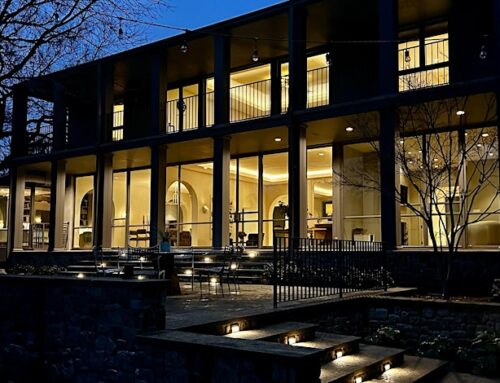
The sun is still rising, but already, a group has gathered in the center of a sprawling field. They march in unison, their fatigues neatly pressed.
At the head of this formation is David Bates. He’s the commander of this troop, only these aren’t typical soldiers: Most of them aren’t even old enough to drive yet.
This is the Junior Reserve Officers’ Training Corps [JROTC] program at T.C. Marsh Middle School in our neighborhood. In essence, the program aims to teach young teenagers good citizenship in a military context.
The Marsh program has won two national titles, making it consistently one of the best in the region.
But just 10 years ago, Marsh had no JRTOC program of consequence. Bates, who also coaches varsity football at W.T. White High School, has been the driving force behind this program, building it from the ground up. “That first year was a mess,” Bates says.
He had recently finished his military duty in Texas when a chance encounter with a middle school principal led to a job offer.
“So I took the job, but I had never taught kids, so it was a real learning experience. Coming from the military to a middle school was complete cultural shock for me.”
Bates started with a handful of students and a few T-shirts to hand out. Today, more than 250 students are enrolled in the program, and he has an entire inventory room full of more than a thousand uniforms — all of which are given to the students for free. On average, all of those uniforms, plus buses and field trips for the program, cost about $15,000 per year. Every penny of that amount comes from student fundraisers or from Bates’ own pocket.
“The district pays my salary, but that’s it,” he says.
And unlike high school JROTC programs, middle schools don’t qualify for federal funding. On average, Bates says he spends about $10,000 of his own money every year to keep the program going.
“I keep doing it, though, because I believe in this program, and I see it helping kids. It’s teaching them things like leadership, public speaking skills and how to respect authority. It’s giving them lessons you don’t find in a book.”
Parent Ken Barth, whose son went though the Marsh JROTC program, echoes those thoughts.
“For some kids, athletics or band is their outlet. But there is a huge group of kids who might not be drawn to that, but still need a positive outlet. This program has become that. It is a place for kids to shine, who might otherwise go down a negative path.
“I don’t know how he does it, but [Bates] manages to become these students’ friend, yet they respect him. He makes little leaders out of them, and if you have kids, this is the kind of moral leader you want influencing them. As a neighborhood, we need to be rallying around this man. This man is changing lives in a big way, and he deserves our support.”
And if he has his way, Bates will be changing a whole lot more lives soon. After about a decade of saving, he finally raised enough funds for the new Leadership Cadet Corps Academy [LCC] on campus — something that will give him the room to expand the program by about 100 kids.
It’s a humble abode, a portable classroom with a small wooden deck. But for Bates and the JROTC kids, it’s exactly what they have wanted all along: a place all their own.
“We used to meet in the cafeteria, gym, whatever space was open. Now we finally have a space just for us. It feels like we finally made it.”
But that’s just phase one of Bates’ master plan. Over the next 10 years, he intends to develop the program into exactly what the new title states — an academy, making it a school-within-a-school. The JRTOC kids would be assigned to pods, moving as a unit from class to class. Nothing like this exists in the nation right now.
“We’d be the first, which would get us national attention — it’d really put us on the map.”
That attention, he says, would hopefully translate into more funding and support so the program could expand even more.
“I’d like to eventually see us get a sponsor so there wasn’t so much pressure on the kids to fundraise every year. These are good kids, they put in about 30 hours of community service here every year — they deserve some more support.
“We need to be investing in this program because it’s teaching kids to do the right thing all the time. And if a kid can do what’s right when no one’s looking, we have won a huge battle in public schools.”
How can you help? The Marsh students use wooden rifles to train, but these easily break when dropped, and replacing them can get pricey. David Bates is trying to save up for some sturdy plastic rifles, but he could use help raising the money. The rifles are $80 each, and the students need about 20. If you’d like to help with this, or if you’d like more information about becoming a sponsor, contact David Bates at dabates@dallasisd.org.






